Principal Investigator: Professor Bill Leithead
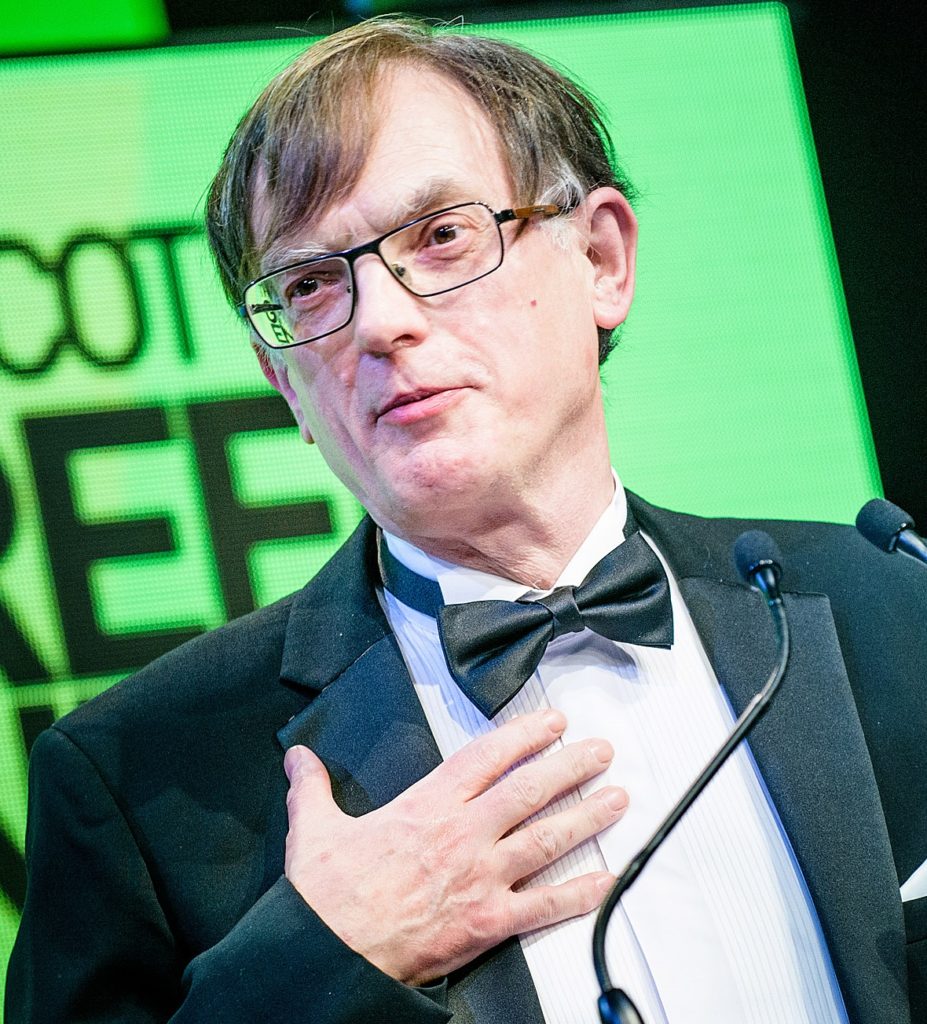
Professor Bill Leithead is the head of the Wind Energy and Control Centre (WECC) at the University of Strathclyde. He has over 30 years’ experience in control of renewable energy devices and is also the director of the EPSRC Centre for Doctoral Training in Wind and Marine Energy Systems & Structures.
His research interests include modelling and control of wind turbines and wind farms, and other renewable energy devices, conceptual design of novel renewable energy devices and digitalisation of offshore energy.
Research Pages:
Bill Leithead — University of Strathclyde
Co-Investigator: Dr Brian Sellar
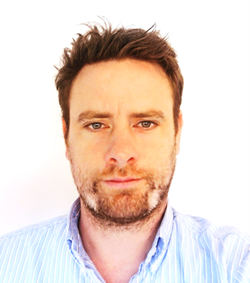
Dr Brian G. Sellar is a Chancellor’s Fellow in Marine Renewable Energy and a Co-Investigator on the HAPiWEC project, working at The University of Edinburgh. Brian completed his PhD in exploratory and experimental sensing for wave energy applications in 2012 after which he continued to work on advanced sensing on a flagship tidal energy research project in partnership with tidal developers, academia and industry as a postdoctoral researcher, and latterly as Technical Lead (www.redapt.eng.ed.ac.uk). Since 2015 he has coordinated multiple tank-testing projects involving instrumented scale models of tidal energy devices, including flow-mapping of the ambient and device-affected flow field. Brian has also led multi-year field measurement campaigns measuring waves, currents and turbulence in the UK, USA and Europe (www.realtide.eu) .
Research Pages:
https://www.research.ed.ac.uk/en/persons/brian-sellar
Relevant recent publications:
Satellite data for the offshore renewable energy sector: synergies and innovation opportunities | https://doi.org/10.1016/j.rse.2021.112588 | Remote Sensing of Environment | 2021
Tidal energy round robin tests: a comparison of flow measurements and turbine loading | https://doi.org/10.3390/jmse9040425 | Journal of Marine Science and Engineering | 2021
Influence of tidal turbine control on performance and loads | https://doi.org/10.1016/j.apor.2021.102806 | Applied Ocean Research | 2021
Rotational sampling of waves by tidal turbine blades | https://doi.org/10.1016/j.renene.2020.10.037 | Renewable Energy | 2020
On the use of a single beam acoustic current profiler for multi-point velocity measurement in a wave and current basin | https://doi.org/10.3390/s20143881 | Sensors | 2020
Capture and simulation of the ocean environment for offshore renewable energy | https://doi.org/10.1016/j.rser.2019.01.011 | Renewable and Sustainable Energy Reviews | 2019
Co-Investigator: Dr David Campos-Gaona
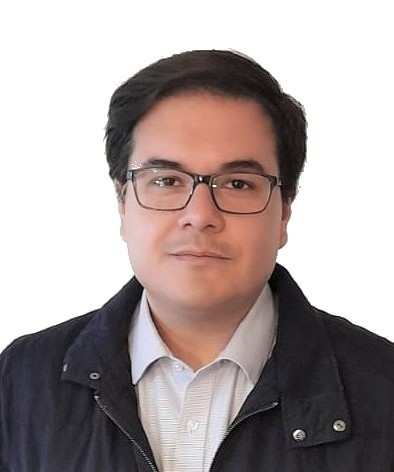
Dr David Campos-Gaona is a University of Strathclyde Chancellor’s Fellow (Lecturer) at electronic & electrical engineering department and member of the WECC (Wind Energy and Control Group). Over the course of his career, David has focused his research efforts on the improvement of production, transmission, and distribution of electric energy by integrating power electronics into the power systems, with a strong reliance on prototype development and digital control to validate the proposed solutions. He has collaborated in industrial prototype development and consultancy activities for companies in Mexico, USA, Canada, and the UK. He is a senior member of the IEEE and has more than 40 refereed publications, including 24 journal articles and one book. Within HAPiWEC, David leads Work Package 3 “Rapid Prototyping to Enable Controllable WECs”.
Relevant Research Publications
VA Lacerda, RM Monaro, D Campos-Gaona, DV Coury, O Anaya-Lara, (2020) Distance protection algorithm for multiterminal HVDC systems using the Hilbert–Huang transform, IET Generation, Transmission & Distribution 14 (15), 3022-3032
D Campos-Gaona, R Pena-Alzola, JL Monroy-Morales, M Ordonez, (2018) “Fast selective harmonic mitigation in multifunctional inverters using internal model controllers and synchronous reference frames”, IEEE Transactions on Industrial Electronics 64 (8), 6338-6349
R Pena-Alzola, D Campos-Gaona, PF Ksiazek, M Ordonez (2016) “DC-link control filtering options for torque ripple reduction in low-power wind turbines” IEEE Transactions on Power Electronics 32 (6), 4812-4826.
D Campos-Gaona, EL Moreno-Goytia, O Anaya-Lara (2013) “Fault ride-through improvement of DFIG-WT by integrating a two-degrees-of-freedom internal model control”. IEEE Transactions on Industrial Electronics 60 (3), 1133-1145
Co-Investigator: Dr Tom Davey
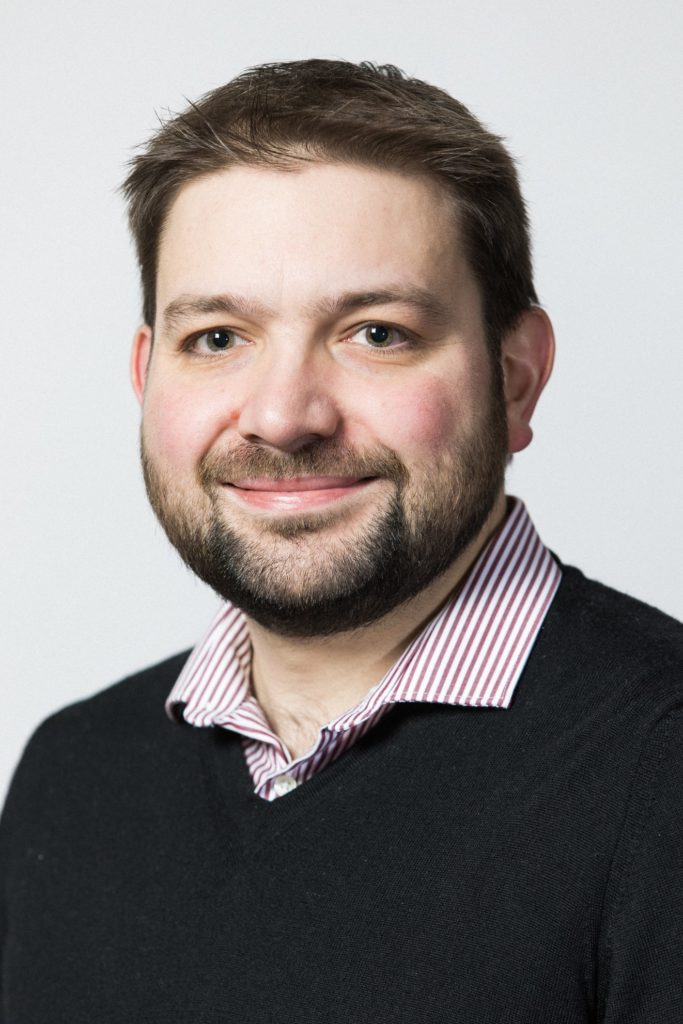
Dr Tom Davey is FloWave’s Senior Experimental Officer and Co-Investigator on the HAPiWEC project at The University of Edinburgh. Tom completed his PhD experimentally studying wave responses at vertical breakwaters in 2010 before moving onto investigating site characterisation and resource assessment for the wave energy sector in the EU FP7 EquiMar project. Since 2013 he has led the engineering team at the FloWave wave-current test tank, delivering a multitude of projects for industrial and academic projects in the offshore renewable energy sector. Within HAPiWEC Tom leads Work Package 5 “Physical Testing”.
https://www.flowave.eng.ed.ac.uk/
Relevant Publications:
Davey, T. et. al (2021). Round Robin Testing: Exploring Experimental Uncertainties through a Multifacility Comparison of a Hinged Raft Wave Energy Converter. Journal of Marine Science and Engineering, 9(9), [946]. https://doi.org/10.3390/jmse9090946
Draycott, S., Noble, D., Davey, T., Bruce, T., Ingram, D., Johanning, L., Smith, H., & Day, A. (2018). Re-creation of site-specific multi-directional waves with non-collinear current. Ocean Engineering, 152, 391-403. https://doi.org/10.1016/j.oceaneng.2017.10.047
Draycott, S., Sellar, B., Davey, T., Noble, D., Venugopal, V., & Ingram, D. (2019). Capture and simulation of the ocean environment for offshore renewable energy. Renewable and Sustainable Energy Reviews, 104, 15-29. https://doi.org/10.1016/j.rser.2019.01.011
Research Co-Investigator: Dr Adam Stock
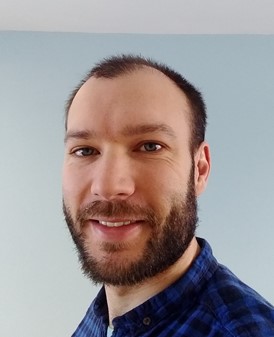
Dr Adam Stock is a Research Fellow and a Research Co-Investigator on the HAPiWEC project, working at the university of Strathclyde. Adam completed his PhD in control in 2015 after which he worked in industry for three years. During this time, he developed the Integrated Marine Point Absorber Control Tool (IMPACT), a MATLAB toolbox for the design of controllers for WECs. He is leading Work Package 2 “Optimal Velocity Tracking Control for WECs”. He also has a strong interest in wind turbine and wind farm control and, outside of research, enjoys playing cricket (badly), playing the guitar (badly) and coaching his children’s rugby teams.
Relevant publications:
Stock, A., & Gonzalez, C. (2020). Design of optimal velocity tracking controllers for one and two-body point absorber wave energy converters. Renewable Energy, 162, 1563-1575.
Stock, A., Tom, N., & Gonzalez, C. (2020, July). Adapting point absorber optimal velocity tracking control techniques to account for wave energy converter constraints and power take-off efficiencies. In International Federation of Automatic Control (IFAC) World Congress 2020.
Co-Investigator: Dr David Forehand
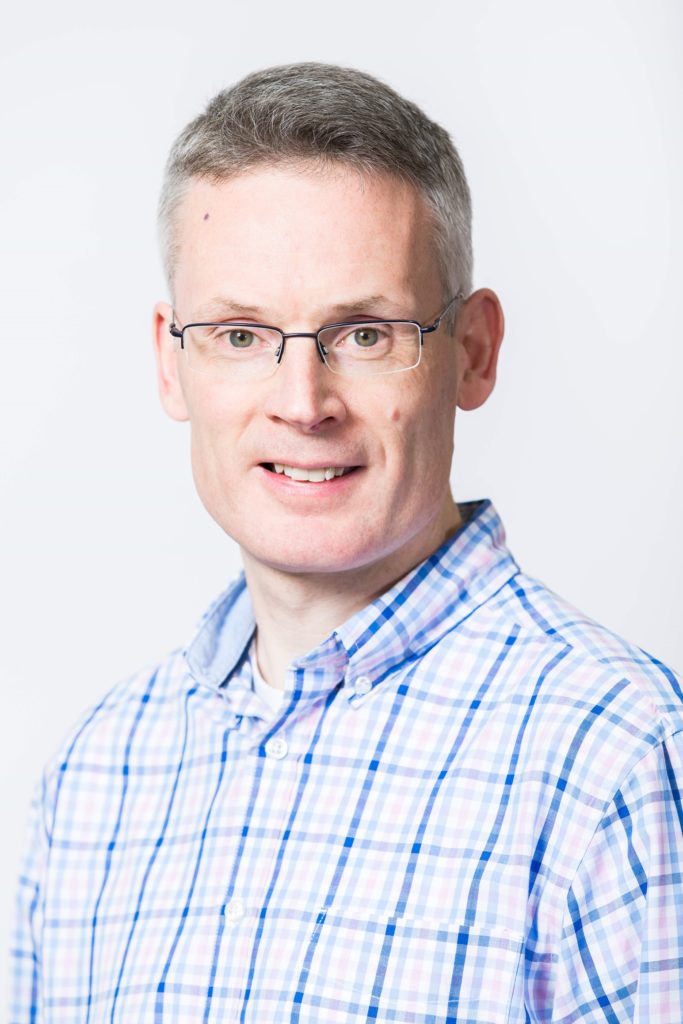
Dr David Forehand is a Lecturer in Engineering Mathematics and Fluid Dynamics at The University of Edinburgh. He is also a Co-Investigator on the HAPiWEC project. David has over 10 years’ of experience in the numerical and physical modelling of single (including rigid-body, multi-body and deformable) Wave Energy Converters (WECs) and WEC arrays. He was the principal Edinburgh researcher on the PolyWEC project and was responsible for the numerical and physical (in wave tanks) modelling of WECs equipped with Dielectric Elastomer Generator (DEG) PTOs. David was also Edinburgh PI on the three follow-on WES funded projects investigating WECs with DEG PTOs. He has more than 60 refereed publications, including 24 journal articles and one book chapter. Within HAPiWEC, David leads Work Package 4 “Numerical Modelling”.
Relevant publications:
A. Garcia-Teruel, B. DuPont & D.I.M. Forehand, (2021) “Hull geometry optimisation of wave energy converters: On the choice of the objective functions and the optimisation formulation”, Applied Energy, Volume 298.
A. Cotten & D.I.M. Forehand, (2020) “Maximum wave-power absorption under motion constraints associated with both controlled and uncontrolled degrees of freedom”, Applied Ocean Research, Volume 100.
G. Moretti, G. Pietro Rosati Papini, L. Daniele, D. Forehand, D. Ingram, R. Vertechy & M. Fontana, (2019) “Modelling and testing of a wave energy converter based on dielectric elastomer generators”, Proc. R. Soc. A, Volume 475.
E. Anderlini, D.I.M. Forehand, E. Bannon, Q. Xiao & M. Abusara, (2018) “Reactive control of a two-body point absorber using reinforcement learning”, Ocean Engineering, Volume 148, Pages 650-658.
Co-Investigator: Prof Alasdair McDonald
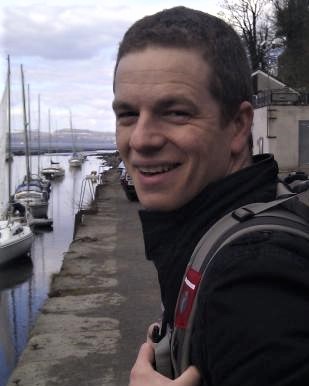
Prof Alasdair McDonald is the Chair in Renewable Energy Technology in the Institute for Energy Systems and Mechanical Engineering Discipline, at University of Edinburgh.
In his research he works on wind turbine powertrain and wave energy powertrain modelling, design, optimisation, reliability and condition monitoring.
Researcher: Dr Alexandra Price
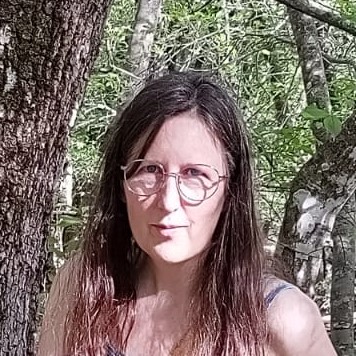
Dr. Alexandra Price is a Research Associate at the University of Edinburgh with a background in experimental modelling of wave energy converters. Since finishing her PhD on wave energy control theory at the University of Edinburgh in 2009, she has worked principally in commercial R&D of wave energy. She conducted field trials and tank testing for AWS on the CLAM concept. She has a personal research blog which have led to several collaborations, including working for Jochem Weber on structured innovation, archiving the Edinburgh Wave Energy Group’s work, and her last project prior to HAPiWEC, CEORL, which was funded to Stage 3 by the Wave Energy Scotland Control call. CEORL investigated the application of reinforcement learning to control of wave energy converters.
Researcher: Dr Peter McCallum
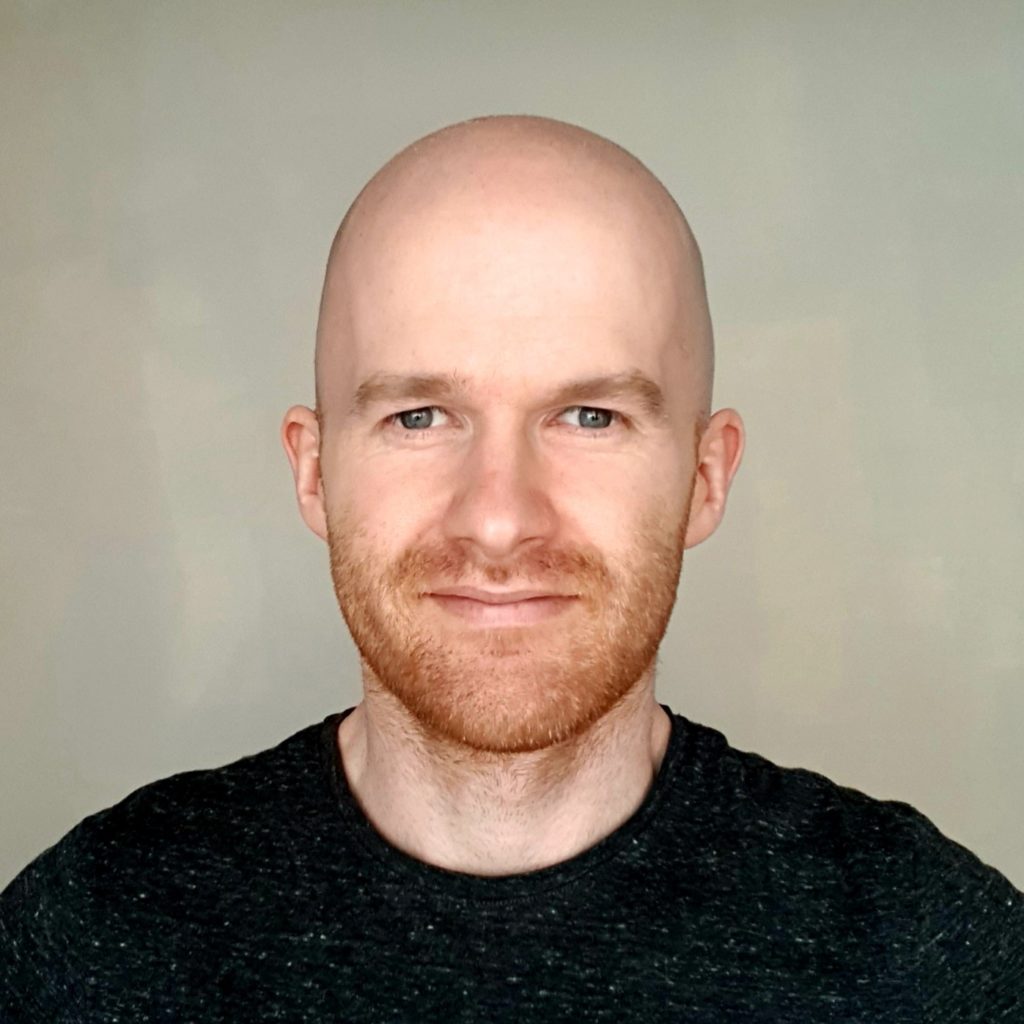
Dr Peter McCallum is a Research Associate at the University of Edinburgh with a background in hydrodynamic modelling of wave energy converters. Since finishing his PhD at the University of Edinburgh in 2017, he has taken a particular interest in research software development, having built and deployed a number of desktop and web applications. A big part of this work has been around the Python-based web framework Django, with example web platforms including tidalenergydata.org. Peter brings a number of core skills to the HAPiWEC project from his experience around numerical modelling and software development, including testing, server deployment management, web security and data protection, relational database design, interface design, performance optimisation, and underlying numerical model design.
Researcher: Dr Seyed Abolfazl Mortazavi Zadeh
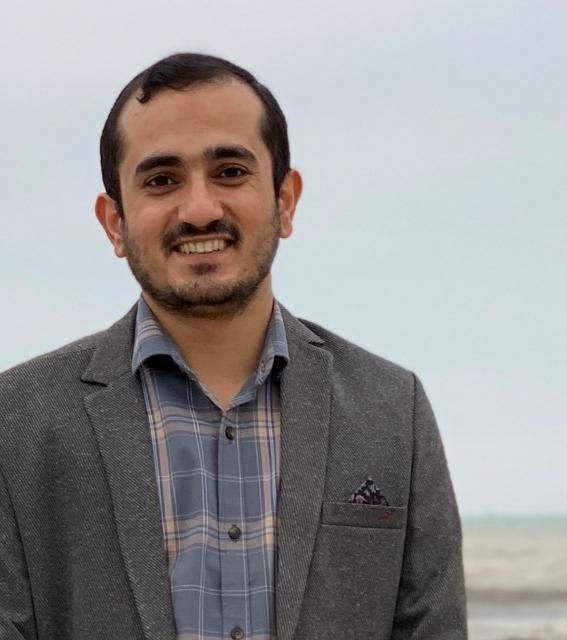
Dr Seyed Abolfazl Mortazavi Zadeh is a research associate at the University of Strathclyde with a background in power electronics and electrical machines. In 2020, he completed a PhD program at the Isfahan University of Technology, Iran. As a postdoctoral researcher, he worked on LLC resonant converters based on GaN-HEMTs at the University of Cassino and Southern Lazio, Italy. In the department of electronics and electrical engineering, he is part of the wind energy and control team since June 2022. For the HAPiWEC project, Seyed worked on remote interfacing and control of wave energy converters.
Recent research publications
Mortazavizadeh, S.A.; Palazzo, S.; Amendola, A.; De Santis, E.; Di Ruzza, D.; Panariello, G.; Sanseverino, A.; Velardi, F.; Busatto, G. High Frequency, High Efficiency, and High Power Density GaN-Based LLC Resonant Converter: State-of-the-Art and Perspectives. Appl. Sci. 2021, 11, 11350.
Mortazavizadeh, S.A., Ghaderi, A., Hajian, M. et al. A fault-tolerant steer-by-wire system based on angular position estimation. Electr Eng 103, 2403–2414 (2021).
Mortazavizadeh, S.A., Ebrahimi, M., Ghaderi, A. et al. Fault-tolerant control of steer-by-wire systems under voltage and current sensors faults. Electr Eng 103, 407–415 (2021).
M. Afshar, S. Abdi, A. Mortazavizadeh, P. Fajri and M. Ebrahimi, “A New Stator Winding Inter-Turn Short Circuit Fault Detection Method For Brushless Doubly Fed Induction Machine,” 2020 IEEE 29th International Symposium on Industrial Electronics (ISIE), 2020, pp. 223-228,
Researcher: Dr Reza Yazdanpanah
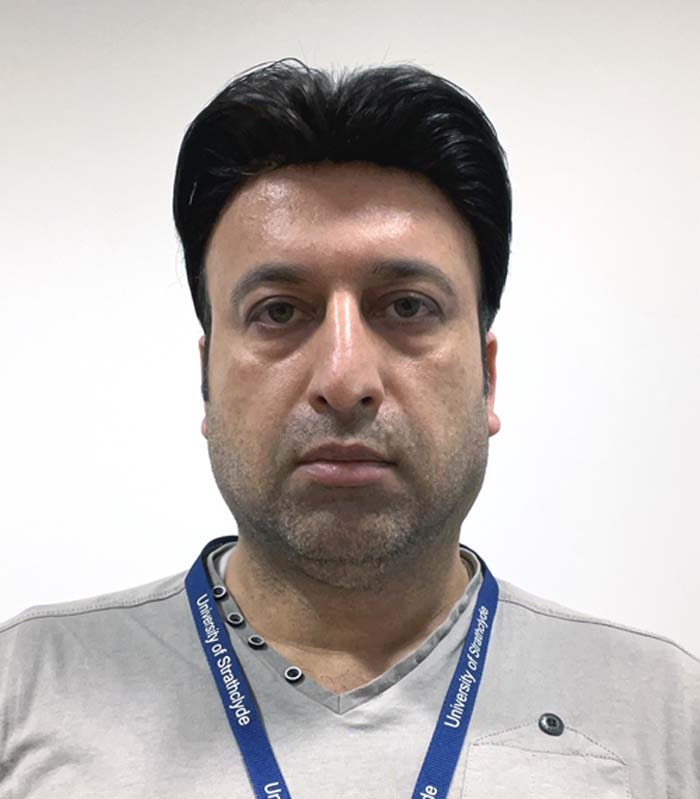
Dr Reza Yazdanpanah received his Ph.D. degree in electrical power engineering from Amirkabir University of Technology, Tehran, Iran, in 2014. His research interests include nonlinear control of electric drives, electric machine design, and power electronics. He is currently with the Wind Energy & Control Centre, Department of Electronic and Electrical Engineering, University of Strathclyde, Glasgow. He contributes to the development of digital control, remote access interface, and power take-off hardware test bed for HAPiWEC.